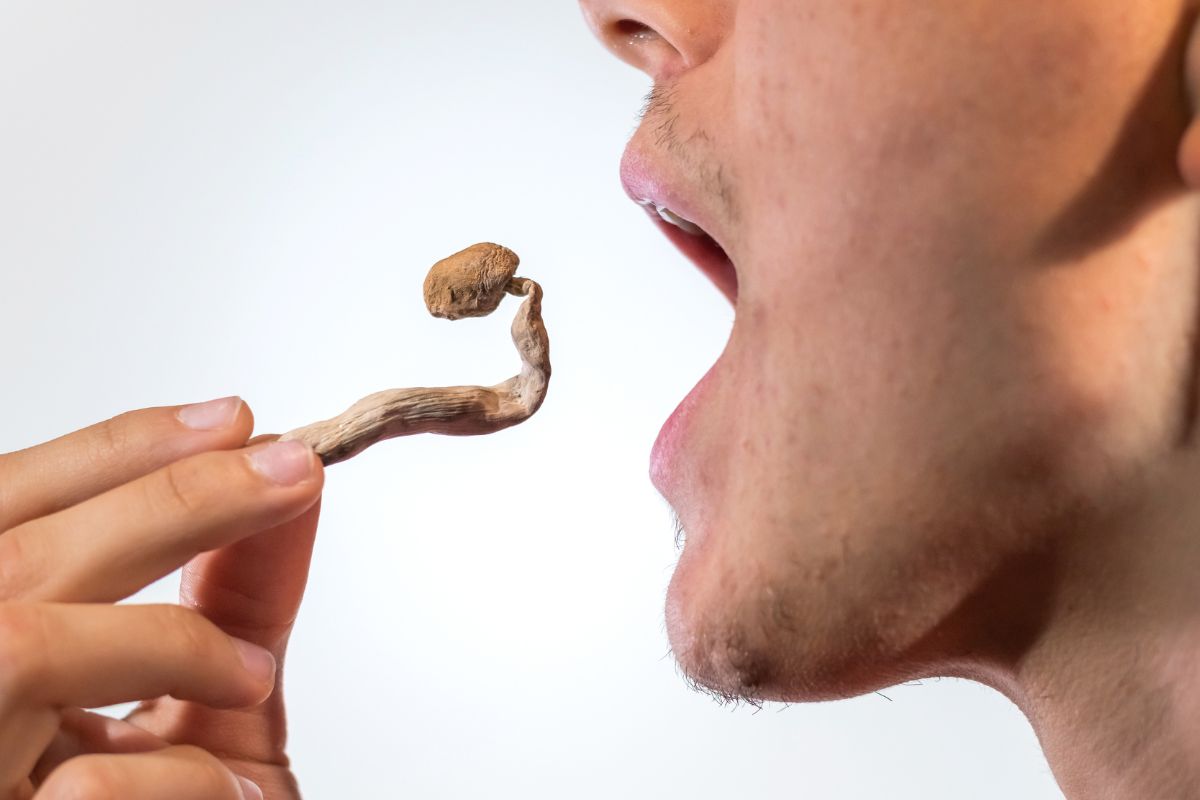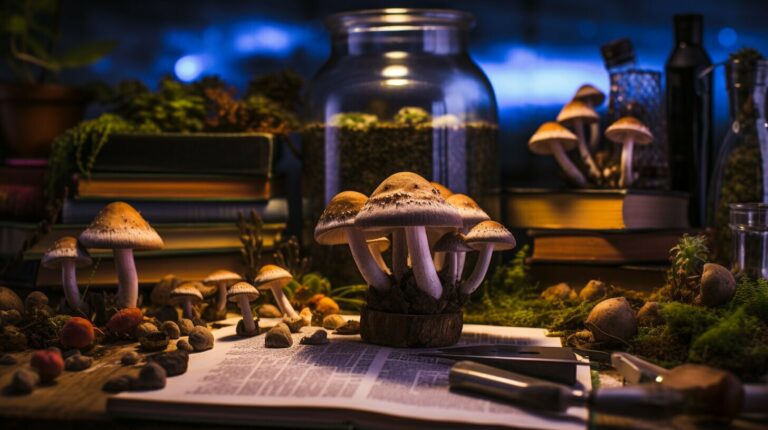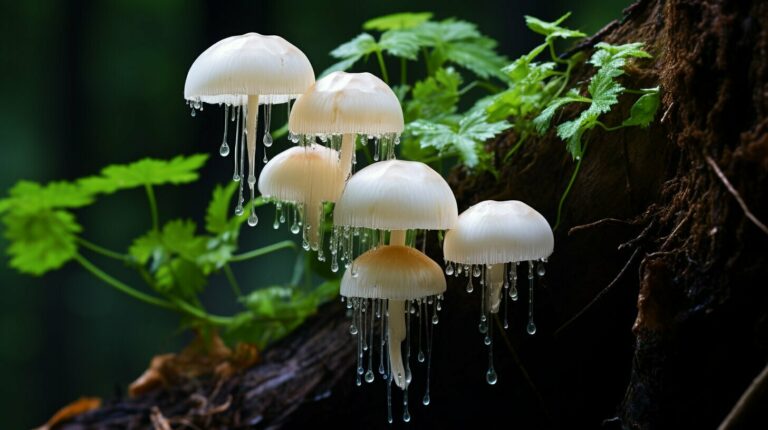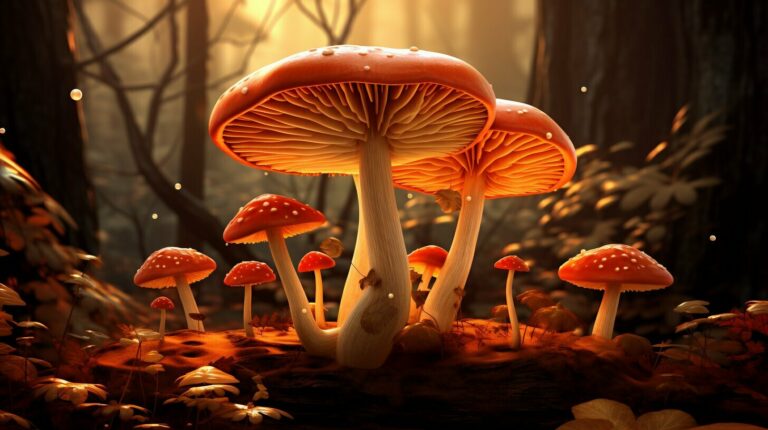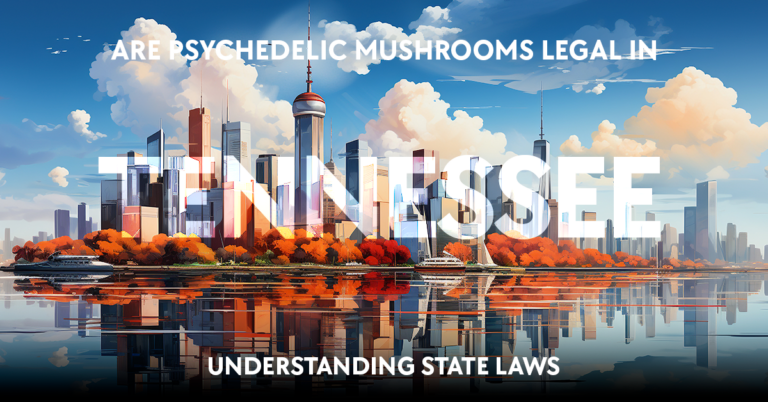When considering the use of psilocybin mushrooms, commonly known as shrooms, one of the frequently asked questions pertains to whether eating beforehand is advisable. While there are various opinions, the most well-informed advice is grounded in understanding the pharmacokinetic properties of psilocybin and how it interacts with the contents of the stomach. The ingestion of food can influence both the onset and intensity of the psychedelic experience.
Eating a light meal a few hours before taking shrooms may help minimize discomfort such as nausea, which some users report when the substance is taken on an empty stomach. It is also believed that a small amount of food can provide a more gradual absorption of psilocybin into the bloodstream, potentially leading to a smoother onset of effects. Conversely, a large meal could delay or diminish the intensity of the experience, as the body prioritizes digesting food over absorbing the psilocybin.
Given that personal metabolism and body chemistry play significant roles in how one might react to psilocybin mushrooms, it’s important to consider personal dietary needs and previous experiences with similar substances. Individuals should remain hydrated and avoid foods that can upset the stomach or cause discomfort, preferring those that are easily digestible to help prepare the body for the altered state that shrooms provide.
Understanding Psilocybin Mushrooms
Table of Contents

When considering the use of psilocybin mushrooms, commonly referred to as magic mushrooms or simply shrooms, it’s essential to be aware of what they are and their potential effects. Psilocybin, a naturally occurring psychoactive compound, is converted into psilocin in your body, which is responsible for the psychedelic effects you may experience.
- Chemical Structure: Psilocybin closely resembles the serotonin in your brain, influencing mood and perception.
- Varieties: Psilocybe cubensis is one of the most common and easily cultivated strains of psychedelic mushrooms.
- Legality: Psilocybin remains illegal in many parts of the world; however, it’s undergoing research for potential therapeutic uses.
When ingested, the onset of effects from psilocybin mushrooms can range from 20 minutes to 2 hours, peaking around 60-90 minutes and can last for four to six hours. Your experience can be influenced by numerous factors, such as your physical state, mental mindset, and environment.
- Microdose (0.1 – 0.5g): Subtle mental effects.
- Moderate (1 – 2.5g): Intense psychedelic effects.
- High (2.5 – 5g+): Profoundly altered perception and possible spiritual experiences.
Consider your intention and respect the potency of these psychedelic substances. Ensure you have informed yourself thoroughly, and remember, your safety should always be a priority.
Preparation Before a Shroom Trip

Careful preparation before a shroom trip is crucial for a positive and safe psychedelic experience. Key elements include measurement of the proper dosage, consideration of your physical and mental setting, and mindful dietary choices.
Determining the Right Dosage
The right dosage of psilocybin mushrooms can vary significantly depending on potency and the individual. It’s often recommended to start with a small dose, especially if you’re inexperienced. A common low dose is around 1 to 2 grams, but even this can be strong depending on the mushroom type.
The Impact of Set and Setting
Your set and setting represent your internal mood or mindset and your external environment. It is advised to trip in nature or a comfortable, familiar place to promote positive and grounding experiences. Your focus should be on preparing yourself for a period of introspection and openness.
Diet and Substance Use
Before your trip, consider fasting or consuming only a light meal to reduce nausea. Hydration is crucial, but dehydration is a risk if you forget to drink water during the experience.
- Avoid:
- Alcohol and caffeine, as they can alter the trip.
- Foods that are hard to digest or may cause discomfort, like greasy or spicy meals.
- Consume light:
- Fruits and vegetables are good options.
- Some individuals prefer fasting for a few hours before to minimize the risk of nausea.
The aim of your preparation should focus on setting a positive tone for your trip, managing potential physical discomfort, and creating the best condition for a profound experience.
Potential Effects and Risks
Before considering the consumption of psilocybin mushrooms, commonly referred to as shrooms, it’s important to be aware of the potential effects and risks they pose. This section addresses the physical and psychological responses that can arise, as well as the long-term mental health considerations tied to their use.
Physical Responses
When you consume shrooms, your body may exhibit a range of physical responses. These can vary depending on the individual, the dosage, and the context of use. Here are some common reactions:
- Nausea and Vomiting: It’s not uncommon to experience digestive discomfort, potentially leading to nausea or vomiting shortly after intake.
- Changes in Blood Pressure and Heart Rate: You might experience fluctuations in your blood pressure and heart rate, which can be risky if you have underlying health conditions.
- Dehydration and Fatigue: The body might lose fluids and you may feel fatigued during and after the shroom experience.
Psychological Effects
Shrooms primarily affect your mind, with notable changes in psychological effects that can significantly alter your perception and mood. Be aware of:
- Altered States of Perception: Your senses may be intensified, leading to a distorted perception of space and time.
- Mood Fluctuations: You may swing from euphoria to anxiety. A “bad trip,” characterized by extreme fear and anxiety, is a risk.
- Serotonin Receptor Activation: Psilocybin binds to serotonin receptors, which can lead to altered mood and cognition.
Long-Term Mental Health Considerations
The use of shrooms can have lasting effects on your mental health, especially if you’re predisposed to or have existing conditions. Keep in mind these points:
- Mental Health Trigger: If you have a personal or family history of mental illness, like bipolar disorder or schizophrenia, shrooms may exacerbate these conditions.
- Potential for Ego Death and Anxiety: Intense experiences such as ego death, where one loses the sense of self, can be both positive and profoundly disorienting, potentially leading to long-term psychological ramifications.
- Persisting Positive Increase in Mood: Some people report a long-term positive boost to mood post-use, but this is not guaranteed and varies widely.
Harm Reduction Strategies
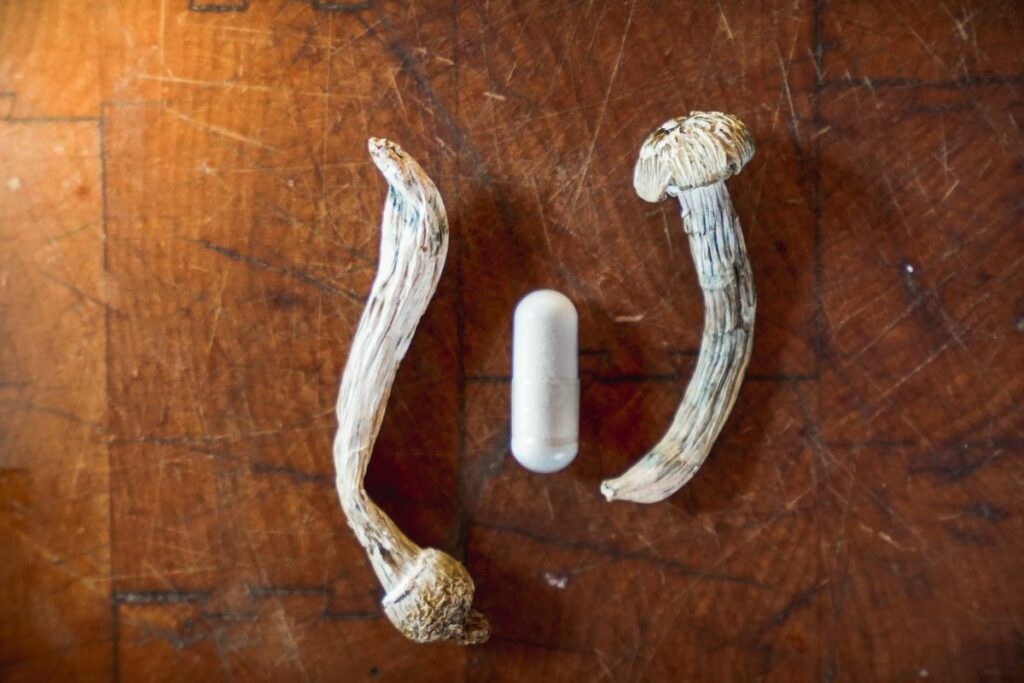
Adopting harm reduction strategies when considering the use of psychoactive substances like mushrooms is crucial for ensuring your safety and positive experience. These strategies encompass legal considerations, responsible use, and preparation for any potential adverse effects.
Responsible Use Practices
When you decide to consume mushrooms, prioritizing safe use practices can significantly reduce risks. It’s important to:
- Dose carefully: Start with a light amount, especially if you’re inexperienced.
- Have a trip sitter: Engage a friend who stays sober and can assist if you experience a bad trip.
- Choose a safe environment: Familiar, comfortable, and hazard-free settings can enhance the positive effects and mitigate the potential for harm.
Legal and Cultural Context
Understanding the legal and cultural context in your area can help you make informed decisions:
- Know the law: Possession and use of mushrooms remain illegal in many places, but some regions have moved to decriminalize or permit legal psychedelic therapy.
- Respect cultural practices: Mushrooms hold cultural significance in various traditions; respecting these can enrich your experience and guide safe use.
Preparation for Adverse Reactions
Preparation is key to managing any unforeseen negative effects:
- Inform someone you trust: Ensure a friend or a trip sitter is available to help if you start having a bad trip.
- Have a plan: Know in advance what steps to take and whom to contact for help.
- Familiarize yourself withresources like hotlines or guidance from experienced mushroom retre harm reduction ats to mitigate any adverse reactions effectively.
Enhancing the Psychedelic Experience
When considering the use of magic mushrooms, two critical elements to bolster your psychedelic experience are your mental preparation and the atmosphere you choose. Approaching the experience with deliberateness in both can significantly influence the quality and impact of your journey.
Setting Intentions and Expectations
To set yourself up for a meaningful psychedelic experience, it’s vital to be clear on your intentions. What are you hoping to gain or explore during the experience? Whether you seek personal insight, spiritual growth, or emotional healing, your intentions act as a compass.
- Plan Ahead: Decide beforehand what you aim to achieve, be it self-reflection or creative exploration.
- Mindset Matters: Approach with positivity and openness to amplify the likelihood of a beneficial experience.
Creating a Supportive Environment
The setting—your physical and social environment lays the foundation for your comfort and safety during a psychedelic experience. A supportive setting can foster a tranquil yet controlled experience.
- Choose Nature or Comfort: Engage with settings that resonate peace, like a quiet room or a serene natural landscape.
- Lighting & Music: Gentle, calming light and a soothing music playlist can enhance the ambiance.
- Therapeutic Support: If in a therapeutic clinical environment, ensure a professional is present to offer guidance.
Remember, the synergy between your internal mindset (set) and your external surroundings (setting) can pivot a magic mushroom experience from mundane to profound.
Integration Post-Trip
After a psychedelic journey, you have the opportunity to integrate your experience into your life, potentially affecting your mood, well-being, and mental health. This can be a crucial time for you to understand the insights gained and how they can influence your daily life.
Reflecting on the Journey
Reflect on your journey by revisiting the thoughts and emotions you encountered. Whether you experienced ego death or not, acknowledging changes in your perception can be key. Jot down specifics when your memory is fresh to capture the nuances of your experience. It’s often helpful to note any moments of significant emotional impact, changes in your thought patterns, and shifts in your understanding of self.
- Mood and Emotions: Did you notice a shift in mood during or after your journey?
- Insights: What did you learn about yourself?
- Challenges: Were there difficult moments that you overcame?
Applying Insights to Daily Life
Now it’s time to bring any lessons or realizations into your everyday life. This may involve setting new goals or adjusting your perspectives on past issues. Direct the positive impulses from your experience towards actionable changes, which might range from improving relationships, adopting healthier habits, or addressing mental health concerns like depression or anxiety.
- Actionable Changes:
- Focus on mental health
- Foster new habits for well-being
- Address specific issues, such as anxiety or depression
Take this process at your pace, and remember that integrating the profound alterations in perception resulting from a psychedelic experience can take time. Be patient with yourself as you translate these insights into positive life changes.
Frequently Asked Questions
Making informed decisions about your dietary choices can significantly influence your experience with psilocybin mushrooms. This section addresses common concerns and provides guidance based on current understanding of their interactions with food.
What are the benefits of fasting before consuming psilocybin mushrooms?
Fasting before consuming psilocybin mushrooms may lead to a quicker onset and more intense effects, as an empty stomach allows for faster absorption of the compound.
How might eating prior to ingesting psychedelics affect the experience?
Eating before ingesting psychedelics might delay the onset of their effects and could potentially soften the intensity, as food in the stomach can slow down the absorption of psilocybin into the bloodstream.
Are there specific foods to avoid before taking psychedelic mushrooms?
It’s advised to avoid heavy, greasy, and spicy foods before taking psychedelic mushrooms as they may cause discomfort or nausea, potentially affecting the overall experience.
Can a full or empty stomach impact the intensity of a psilocybin experience?
The fullness of your stomach can impact the intensity of a psilocybin experience; a full stomach might lead to a milder experience, while an empty stomach can intensify the effects.
How long before taking mushrooms should one stop eating?
Generally, it’s recommended to stop eating 2-3 hours before taking mushrooms to ensure the stomach is relatively empty, enhancing the psilocybin absorption rate.
What dietary considerations should be taken into account for individuals with sensitive stomachs planning to take shrooms?
For those with sensitive stomachs, it’s important to stick to light meals and avoid acidic, spicy, or fatty foods before taking shrooms. Staying hydrated is also crucial to reduce potential stomach upset.

